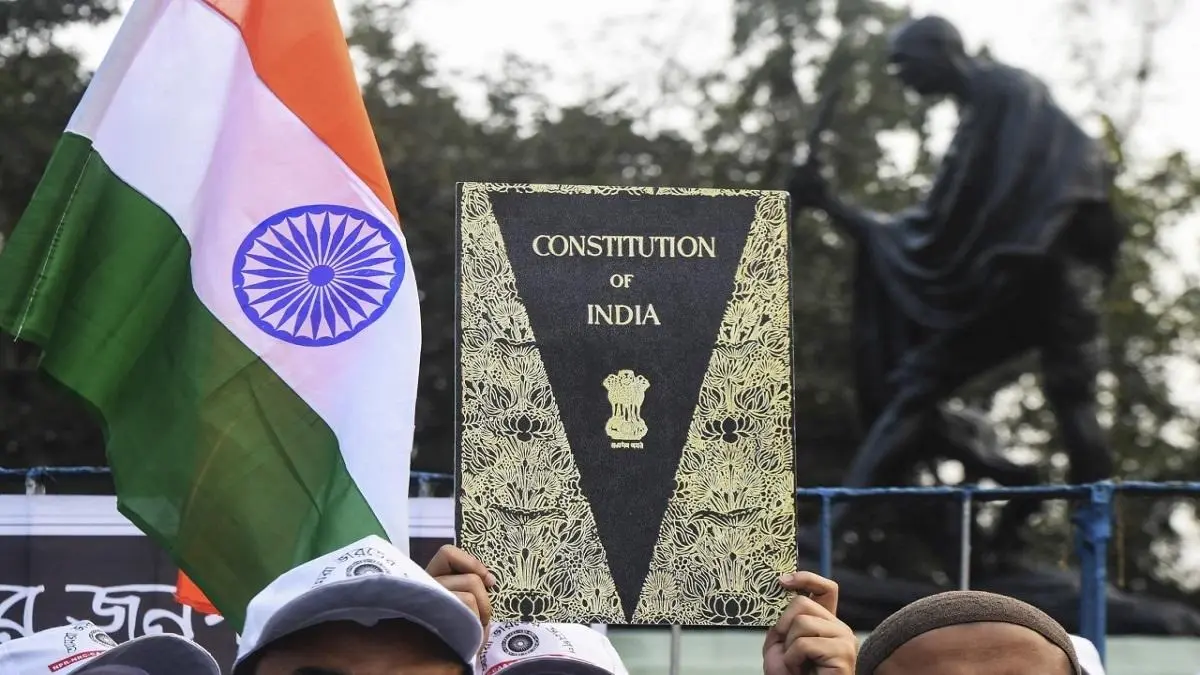Updated 16 April 2025 at 17:34 IST
What Is Article 26 And Why Supreme Court Discussed It During Waqf Hearing
The Supreme Court, while hearing onthe Waqf Act, sparks debate on Article 26, which protects religious groups' rights to manage their affairs.
- India News
- 3 min read

New Delhi: Article 26 of the Indian Constitution, which guarantees the right of religious denominations to manage their own affairs, came under sharp focus in the Supreme Court on Wednesday during the hearing of a batch of petitions challenging the Waqf Amendment Act.

What Is Article 26?
Article 26 of the Constitution of India ensures that every religious denomination, or any section thereof, has the right:
(a) to establish and maintain institutions for religious and charitable purposes;
(b) to manage its own affairs in matters of religion;
Advertisement
(c) to own and acquire movable and immovable property; and
(d) to administer such property in accordance with the law.
Advertisement
These rights are subject to public order, morality, and health, making Article 26 a fundamental but regulated freedom under the Constitution. It forms the cornerstone of India’s secular structure by protecting the autonomy of religious groups in their internal religious affairs.
Why It Came Up in the Supreme Court?
A three-judge bench headed by Chief Justice of India Sanjiv Khanna was hearing petitions that challenge the constitutional validity of the Waqf Amendment Act. The Act governs the administration and oversight of Waqf properties—religious endowments in Islam—and the recent amendments have triggered debate on religious autonomy.
Senior advocate Kapil Sibal, representing Jamiat Ulema-E-Hind, invoked Article 26 while arguing that the amended law infringes upon the rights of the Muslim community to manage its religious institutions.
“Through parliamentary legislation, what is sought to be done is to intervene in an essential and integral part of a faith. Many provisions of the Act violate Article 26,” Sibal argued.
He pointed to specific provisions that allegedly interfere with Islamic inheritance laws and governance of Waqf boards. “Who is the state to tell us how inheritance will be in my religion?” he asked.
Secular Law vs Religious Autonomy
In response, CJI Khanna said that the state has legislated on similar matters for other communities, including Hindus, and stressed that Article 26 is universal and secular in nature.
“So, Parliament has enacted a law for Muslims. Maybe not like for Hindus. Article 26 will not bar the enactment of law in this case,” the Chief Justice said.
However, Sibal countered that Islamic inheritance rules operate only after death and are inherently religious. He also took issue with a provision allowing non-Muslims, including Hindus, to be appointed to Waqf Boards, calling it a "direct usurpation" of Muslim rights under Article 26.
“Only Muslims have historically been a part of the Waqf Boards. Now, even Hindus can be appointed. This is a clear violation of the community’s right to manage its religious institutions,” he said.
Justice KV Vishwanathan, also on the bench, offered a word of caution, noting that administrative control under Article 26 should not be confused with essential religious practices.
The hearing has brought to the fore critical questions on how far the state can go in regulating religious institutions under a secular framework without infringing upon constitutionally protected rights. The matter is expected to be taken up again by the Supreme Court in the coming days.
Get Current Updates on India News, Entertainment News, Cricket News along with Latest News and Web Stories from India and around the world.
Published By : Surabhi Shaurya
Published On: 16 April 2025 at 16:09 IST
